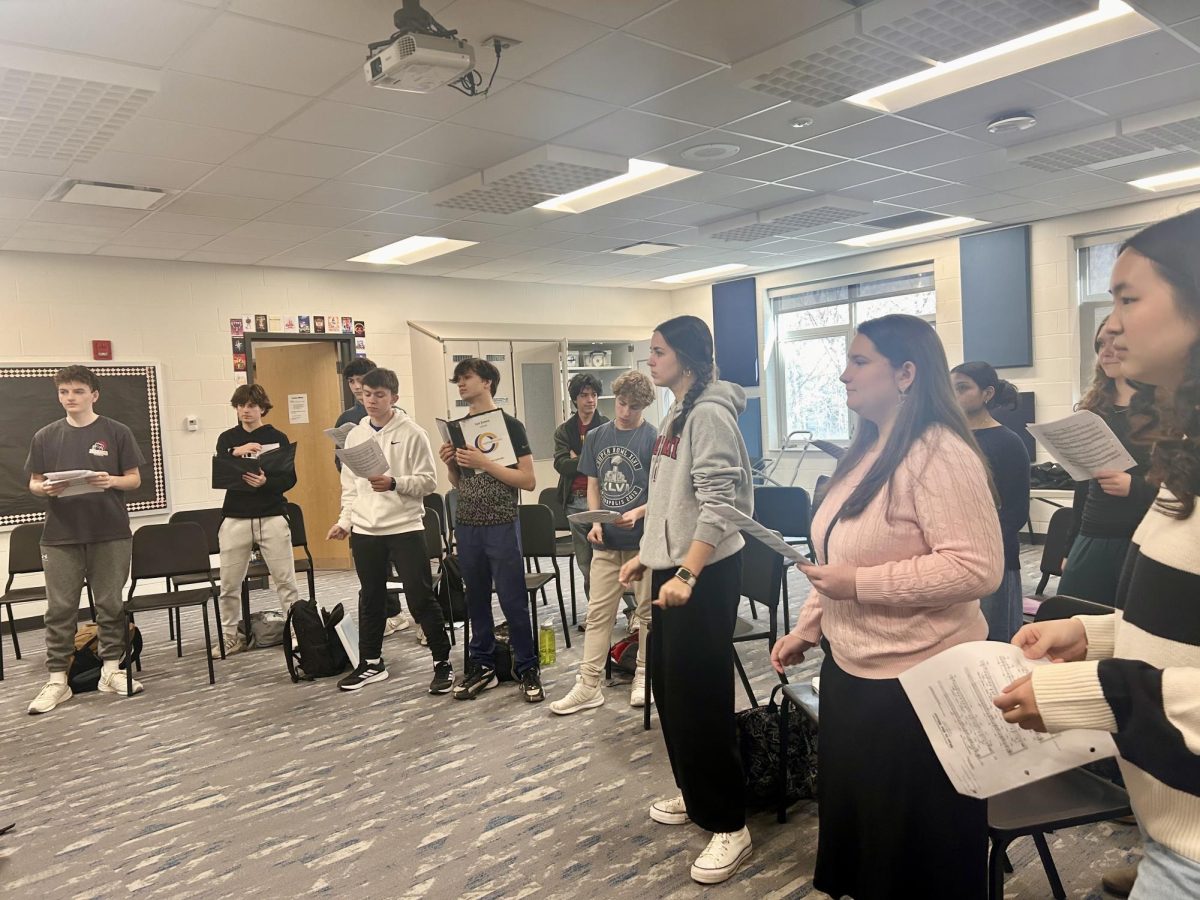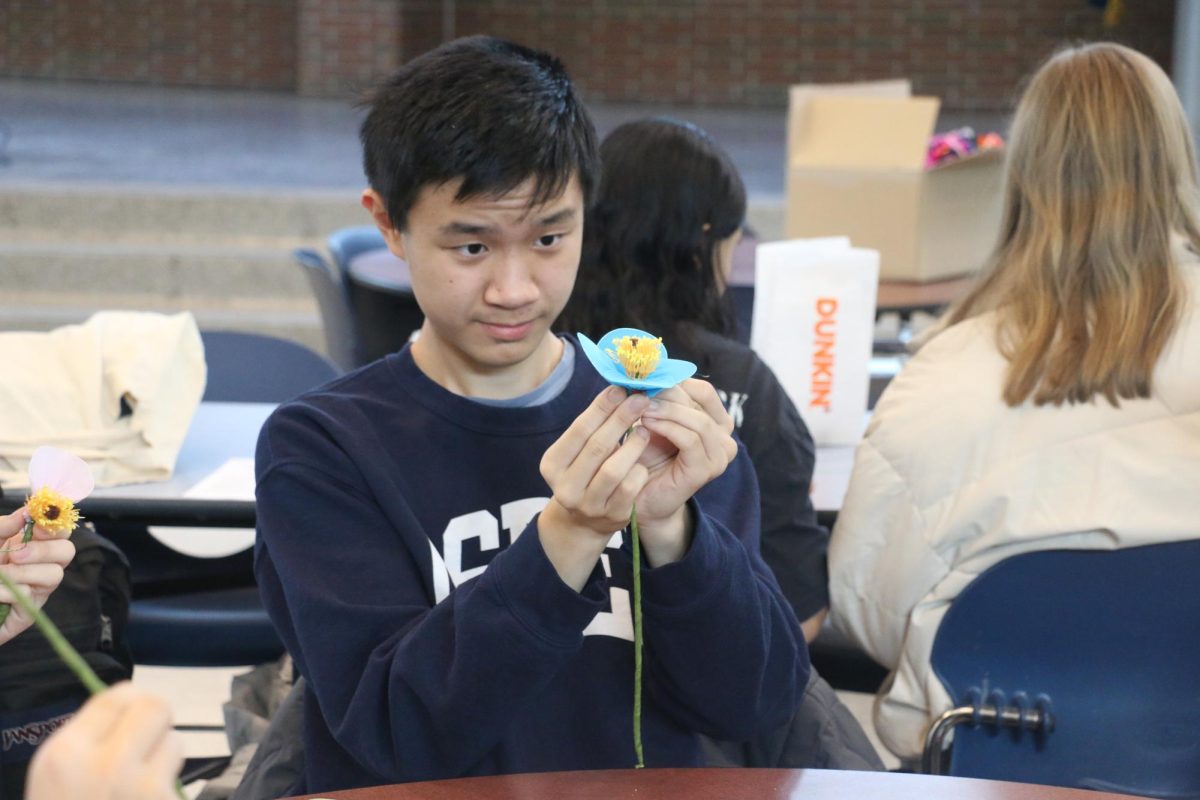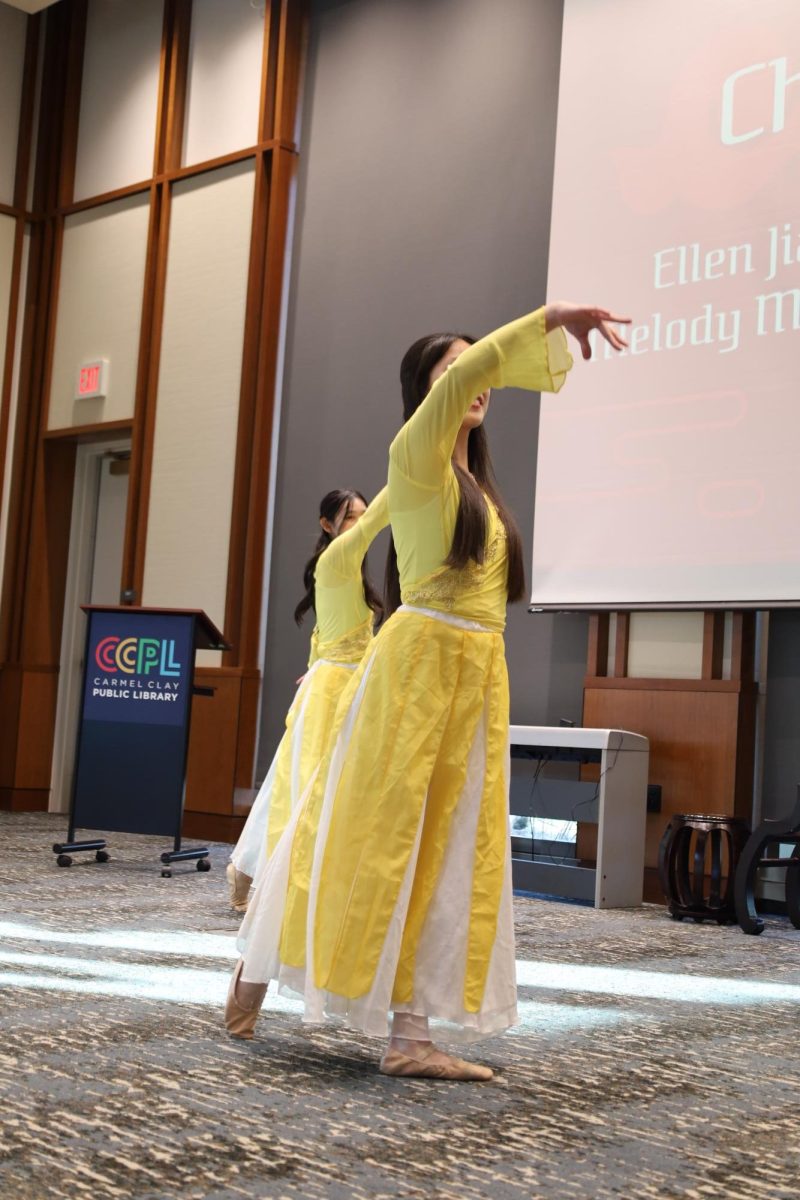In the midst of an economic recession, not-for-profit organizations are in a pinch for money and charitable donations. Economics teacher Dan Bates said the economy has had a negative effect on donations to these organizations. “For most charitable contributions, donations are discretionary. The current economic situation is making charitable donations decrease,” he said.
With the economic crisis, fund-raisers such as the annual Carmel Clay Educational Foundation’s (CCEF) Telethon may be in a pinch for money because they will receive smaller donations.
This year’s telethon is set for February 19 from 6 p.m. until 9 p.m., with National Honor Society (NHS) students calling people who have donated in the past from Feb. 17 until the end of the telethon.
Kyle Borcherding, CHTV staff member and senior, said, “I really have no idea if the economy will have an effect on (the telethon), but I hope it doesn’t.”
The telethon has been profitable in the past, helping the CCEF give over $400,000 in grants since 1995 to the school system, according to Lorri Brune, Executive Director of the CCEF. However, there is still worry that the economy might have an effect on donations.
Brune said, “Our hope is that the economic downturn will not affect our telethon. We have a strong donor base to solicit contributions.”
Last year, the telethon raised about $27,000 for the CCEF’s grant program for teacher and students, according to Brune.
The statistics, however, show that the economy does have an effect on these types of organizations. According to Bates, “Nonprofit organizations’ funding comes solely from donations. Food pantries are empty, and they’re taking a hit like any other nonprofit organization, which is the same general idea of what could happen here.”
In order to help offset the losses, other possibilities to raise money can be put into effect. According to Espey, “We might try to have personal testimonies of past winners during the telethon. It couldn’t hurt. Any time there is a personal testimony people know the money is helping someone and that makes it more meaningful.”
In addition, Espey said the telethon features elementary and middle school students whose parents typically attend the event, since their children cannot drive.
“Instantly, we have an auditorium audience that is larger than you might think,” he said.
Bates said that people donate less because they believe they need that money to feel economically secure and that other necessities become more important when money is in short supply.
“We now live in a society where a cell phone is a necessity. People don’t see donations as a necessity; they donate because of how it makes them feel for doing it,” Bates said.
Even though the United States is in a recession, the telethon will nonetheless receive money to benefit the school.
Brune said, “The donations are typically not large amounts, so we are hopeful that families will still determine that the CCEF is a very worthwhile organization.”































![AI in films like "The Brutalist" is convenient, but shouldn’t take priority [opinion]](https://hilite.org/wp-content/uploads/2025/02/catherine-cover-1200x471.jpg)













































![Review: “The Immortal Soul Salvage Yard:” A criminally underrated poetry collection [MUSE]](https://hilite.org/wp-content/uploads/2025/03/71cju6TvqmL._AC_UF10001000_QL80_.jpg)
![Review: "Dog Man" is Unapologetically Chaotic [MUSE]](https://hilite.org/wp-content/uploads/2025/03/dogman-1200x700.jpg)
![Review: "Ne Zha 2": The WeChat family reunion I didn’t know I needed [MUSE]](https://hilite.org/wp-content/uploads/2025/03/unnamed-4.png)
![Review in Print: Maripaz Villar brings a delightfully unique style to the world of WEBTOON [MUSE]](https://hilite.org/wp-content/uploads/2023/12/maripazcover-1200x960.jpg)
![Review: “The Sword of Kaigen” is a masterpiece [MUSE]](https://hilite.org/wp-content/uploads/2023/11/Screenshot-2023-11-26-201051.png)
![Review: Gateron Oil Kings, great linear switches, okay price [MUSE]](https://hilite.org/wp-content/uploads/2023/11/Screenshot-2023-11-26-200553.png)
![Review: “A Haunting in Venice” is a significant improvement from other Agatha Christie adaptations [MUSE]](https://hilite.org/wp-content/uploads/2023/11/e7ee2938a6d422669771bce6d8088521.jpg)
![Review: A Thanksgiving story from elementary school, still just as interesting [MUSE]](https://hilite.org/wp-content/uploads/2023/11/Screenshot-2023-11-26-195514-987x1200.png)
![Review: "When I Fly Towards You", cute, uplifting youth drama [MUSE]](https://hilite.org/wp-content/uploads/2023/09/When-I-Fly-Towards-You-Chinese-drama.png)
![Postcards from Muse: Hawaii Travel Diary [MUSE]](https://hilite.org/wp-content/uploads/2023/09/My-project-1-1200x1200.jpg)
![Review: "Ladybug & Cat Noir: The Movie," departure from original show [MUSE]](https://hilite.org/wp-content/uploads/2023/09/Ladybug__Cat_Noir_-_The_Movie_poster.jpg)
![Review in Print: "Hidden Love" is the cute, uplifting drama everyone needs [MUSE]](https://hilite.org/wp-content/uploads/2023/09/hiddenlovecover-e1693597208225-1030x1200.png)
![Review in Print: "Heartstopper" is the heartwarming queer romance we all need [MUSE]](https://hilite.org/wp-content/uploads/2023/08/museheartstoppercover-1200x654.png)

